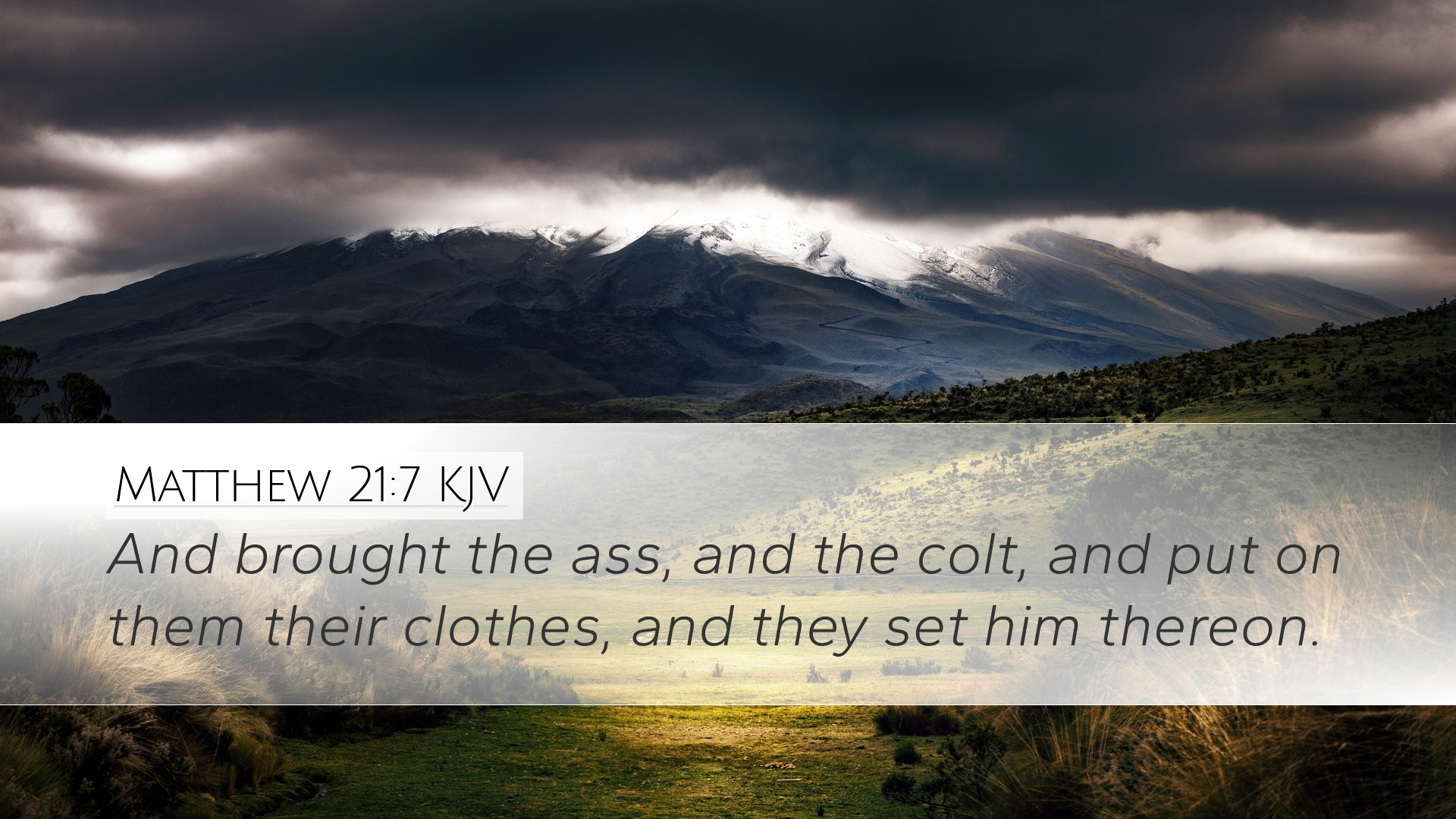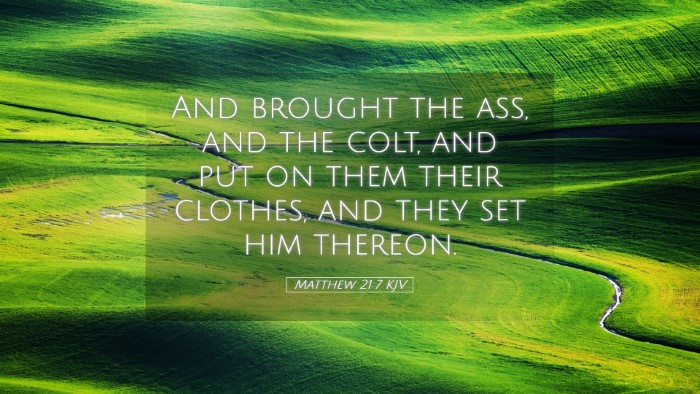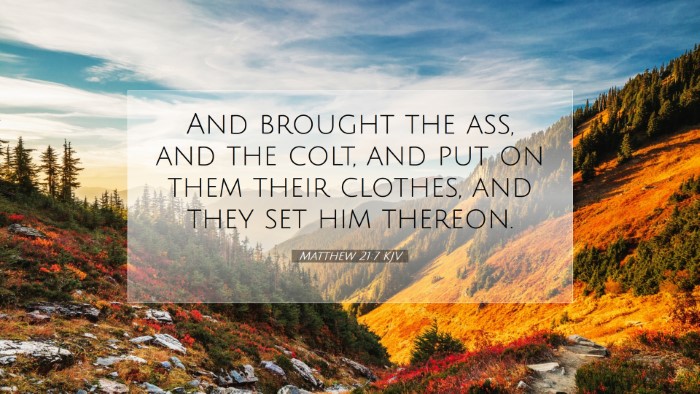Commentary on Matthew 21:7
Bible Verse: "They brought the donkey and the colt, laid their clothes on them, and set Him on them." (Matthew 21:7, NKJV)
Context and Significance
This passage occurs during the Triumphal Entry of Jesus into Jerusalem, a significant event marking the beginning of the final week of His earthly ministry. Understanding the context in which this event occurs is crucial for appreciating its theological implications.
Historical Context
Matthew Henry emphasizes that this entry fulfilled the prophecy given in Zechariah 9:9, which foretold the coming of the King to Zion, "gentle and riding on a donkey." This act of humility signified that Jesus came not as a conquering ruler but as a servant, reflecting His overall mission of salvation rather than political uprising.
Symbolism of the Donkey
Both Albert Barnes and Adam Clarke highlight the significance of the donkey. In Jewish tradition, the donkey symbolizes peace, as opposed to a horse, which signifies war. By riding a donkey, Jesus represents His kingdom as one of peace and humility. This should challenge the expectations of the people who anticipated a military leader who would liberate them from Roman rule.
The Act of Preparation
This verse details the actions of the disciples and the owners of the donkey and the colt. The disciples' obedience to Jesus’ instructions evidenced their growing understanding of His divine authority and messianic identity.
Obedience and Faith
Matthew Henry discusses the significance of the disciples approaching the owners of the animals. Their willingness to release the donkey and colt illustrates a broader theme of God’s sovereignty. The owners' immediate acceptance of the disciples' request symbolizes the recognition of Jesus' divine authority; they understood that Jesus' mission was imbued with providential significance.
Laid Their Clothes Upon Them
The action of laying clothes upon the donkey and the colt exemplifies homage and royal treatment. Albert Barnes notes this cultural custom as a way of honoring someone of great importance. In doing so, the disciples and the crowd exhibited their acknowledgment of Jesus as the awaited Messiah, blending both reverence and celebration.
Symbolic Presentation of Jesus
Adam Clarke elaborates on the dress being laid on the animals, indicating that the garments signify a transition to kingship. The act of covering the donkey with garments not only fulfills prophecy but also harkens back to the practices in ancient Israel when kings were honored. The garments serve to point to Jesus’ unique identity as both the humble Savior and the King of Glory.
Theological Implications
This brief narrative is rich in theological meaning, revealing aspects of Christ's nature and mission. It invites believers to reconsider their understanding of power, authority, and kingship.
Humility in Service
The choice of a donkey over a grand steed sends a profound message about the nature of Christ’s kingdom. Matthew Henry notes that true leadership is found in humility and service. The character of Christ stands in stark contrast to the worldly definitions of power and success.
Invitation to Receive the King
This event was not only a grand moment in Jesus’ ministry but also an invitation for the people to recognize Him as their King. Albert Barnes suggests that this narrative serves as a wake-up call to the people of Jerusalem to reflect on their own spiritual readiness to embrace Jesus, the Messiah they had awaited.
Concluding Reflection
In Matthew 21:7, we see a microcosm of the Christian faith—a call to humility, an acknowledgment of Christ's rule, and an invitation to participate in the Kingdom of God. As pastors, students, theologians, and Bible scholars, it is essential to reflect on our own response to the King who rides in humility. Are we willing to lay down our own garments, our pride, and our expectations, to embrace the true nature of His kingship?
In this passage, we find both a historical account and a theological treasure, beckoning us to re-examine our relationship with Christ and our understanding of His kingdom.


